Colonial Genealogy: Find Your Early American Ancestors
Early American Ancestors Research
Elevenses with Lisa Episode 33

Lindsay Fulton, VP New England Historic Genealogical Society (NEHGS)
In this episode we head back to 17th century New England with Lindsay Fulton of the New England Historic Genealogical Society and AmericanAncestors.org
Lindsay Fulton is with American Ancestors and New England Historic Genealogical Society where leads the Research and Library Services team as Vice President. She is a frequent contributor to the NEHGS blog and was featured in the Emmy-Winning Program: Finding your Roots: The Seedlings, a web series inspired by the popular PBS series “Finding Your Roots.”
Watch the video and follow along with the show notes below as we cover how to get started researching our early American ancestors. Lindsay will also provide her top genealogical resources.
Getting Started with Colonial-Era Research
During this period of American history, New England includes:
- Connecticut
- Maine
- Massachusetts
- New Hampshire
- Rhode Island
- Vermont
To get started in Colonial-Era genealogical research, Lindsay says the first thing you need to do is put your ancestors into an historical context:
- When did they arrive in New England?
- Where did they migrate to?
Significant dates and events at this time include:
- The Mayflower’s arrival in 1620
- The Great Migration: 1620-1640, with the peak years between 1633 and 1638.
- The Civil War in England, which slowed migration.
Turn to the book The Expansion of New England, The spread of New England Settlement and Institutions to the Mississippi Rover 1620-1865 by L. K. Mathews. Published in 1909 this important book includes 30 to 40 historical maps.
More Resources for 17th Century American Genealogy Research
Book: Genealogists Handbook for New England Research, 5th Edition. Edited by Michael J. Leclerc. This book includes important detailed information on towns, cities, and states. It will help you determine where to look for records during a given timeframe.
Resources at the American Ancestors website
- AmericanAncestors.org > Town Guides (Free)
- AmericanAncestors.org/town-guides/ for New England
Early New England Finding Aids
Finding Aids provide a comprehensive list of all the available records for a person / family.
The first place to look for people settling in New England prior to 1700: New England Marriages Prior to 1700 by Clarence Almon Torrey. This book includes scholarship prior to 1962. Learn more about it here.
The next place to look: Founders of Early American Families by Meredith Colkert. Scholarship goes a little further than 1962 and ventures beyond New England. This book covers 1607-1657.
The next place to look: New Englanders in the 1600s, A Guide to Genealogical Research Published Between 1980 and 2010 by Martin E. Hollick. At the beginning of the book there is a key to all of the original sources. For example, TAG refers to The American Genealogist.
From Lindsay: “The thing about 17th century research, like a said at the beginning, the most studied people on the planet. So, don’t reinvent the wheel, don’t drive yourself crazy trying to find all of this information on your own. You have to stand on the shoulders of those who have come before you. There are all of these people who have done all this research before. Please look at first. Always look at with a little bit of hesitation because there’s always possibilities that mistakes were made. But at least take a peek at what’s already been done first!”
Colonial-Era Study Projects
The first example that Lindsay provided of a study project for early American ancestors is the Great Migration Study Project (searchable online database at AmericanAncestors.org)
- Directed by Robert Charles Anderson, FASG
- Started in 1988
- Genealogical and biographical sketch for immigrants to New England from 1620 to 1640
- Fourteen published volumes
- Newsletter (bound versions available)
- Tours and other educational programs
- Searchable online databases
Published Volumes:
- The Great Migration Directory, Immigrants to New England, 1620-1640
- The Great Migration Begins: Immigrants to New England 1620-1633 (3 vols.)
- The Great Migration: Immigrants to New England 1634-1635 (7 vols.)
- The Pilgrim Migration: Immigrants to Plymouth Colony 1620-1633
- The Winthrop Fleet: Massachusetts Bay Company Immigrants to New England 1629-1630
- The Great Migration Newsletter, vols. 1-20
- The Mayflower Migration: Immigrants to Plymouth, 1620
Those who are included in the study project:
- If person appeared in a record
- Direct or indirect implication of arrival
- Appearance of an immediate family of a person known to have arrived
The second study project example was the Early New England Families Study Project
- Directed by Alicia Crane Williams
- Genealogical and biographical sketch for those who married in New England from 1641 to 1700
- Grouped by year of marriage
- Two published volumes
- Searchable online database
- New sketches posted online
Who is included:
- Using Clarence Almon Torrey’s New England Marriages Prior to 1700 as guide
- Anyone who married in New England in this time period and included in Torrey
Compiled New England Genealogies
There are millions of compiled genealogies available for early American ancestors. Lindsay discussed three publications (available in book form) that are state specific:
- Pioneers of Massachusetts 1620-1650 one of many book by Charles Henry Pope
- Genealogical Notes, or Contributions to the Family History of Some of the First Settlers of Connecticut and Massachusetts, by Nathaniel Goodwin
- Genealogical Dictionary of Maine and New Hampshire by Noyes, Libby, and Davis
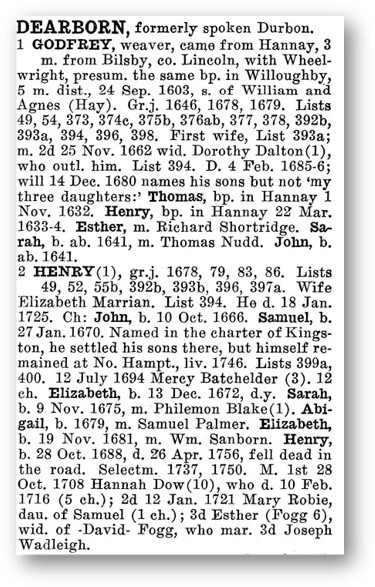
Example from a New England compiled genealogy.
Periodicals
- New England Historical and Genealogical Register (published since 1847)
- New York Biographical & Genealogical Record
- The Mayflower Descendant
- The American Genealogist
- and more!
These can be searched on AmericanAncestors.org: Database Search > Select the Category Journals and Periodicals, and then scroll through all of the available items. They are fully searchable. You will be able to see the actual record. You can download and print the items.
Mayflower Research Resources
The Silver books and the Pink books done by the General Society of Mayflower Descendants. It’s looking at those passengers with known descendants. These are only available currently in book form. If you are interested in applying to the Mayflower Society, they accept these as original records. You can cite the pages. (Learn more about Mayflower related resources at American Ancestors.)
Mayflower Families 5th Gen. Desc.
- Available at AmericanAncestors.org
- Index of all the 5th Generation descendants,
their spouses and children - 31 volumes in total.
- Over 385,000 searchable names
Visit: Database List A – Z at American Ancestors.
If you click Mayflower Families Fifth Generation Descendants, 1700-1880, it will take you to a search page where you can search by names and years, or search by volumes. It will bring up all of the available records.
General Society of Mayflower Descendants (GSMD) Membership Applications, 1620-1920
- New – available soon. Only on AmericanAncestors.org
- Contains all Mayflower Society Applications for applicants born before 1920. Approximately ~30,000 applications
- All data indexed for each generation
- Available to: American Ancestors & NEHGS Members, FamilySearch Affiliate members, and GSMD Members.
New England Genealogy Records
When doing New England genealogy research look for the following records:
- Vital Records
- Church Records
- Cemetery Records
- Probate Records Court Records
- Town Records
- Military Records
- Notarial Records
Usually you’ll be looking at the town level. This is why you must know where your ancestors were living, and what the place was called at that time, and what the borders were.
Be sure to check out 17th-Century New England Research page at the American Ancestors website for more New England tips, tricks and strategies.
Answers to Questions about Early America Genealogy Research
You can schedule a consultation with an expert genealogist on staff at NEHGS.
Length: 30 minutes to 2 hours
Conducted over Zoom or over the phone. A recording is provided.
Contact: research@nehgs.org
Fee: $85 (members) or $105 (non-member)
More on Using the American Ancestors Website
Premium Podcast episode 177 (Genealogy Gems Premium Membership is required.) In this episode we explore the New England Historic Genealogical Society’s American Ancestors website with Claire Vail, Director of Creative and Digital Strategy for the New England Historic Genealogical Society.
Answers to Your Live Chat Questions About Colonial American Genealogy
One of the advantages of tuning into the live broadcast of each Elevenses with Lisa show is participating in the Live Chat and asking your questions.
From Susan W: Is there a source for Rhode Island? (I’m not sure if she was thinking about one particular resource you mentioned or generally. Perhaps she just needs a RI finding aid?)
From Lindsay: Yes! American Ancestors-NEHGS has a fantastic guide to Rhode Island research, which you can access with a free guest membership here.
From Cindy A: What percentage of the items you showed would require a paid membership?
From Lindsay: The majority of the databases shown are included as a benefit of membership with American Ancestors-NEHGS, but if you are interested in Colonial American genealogy, you should consider membership. We have hundreds of databases that will help you to discover more about your 17th and 18th Century ancestry. You can learn more about these databases (and books in the library) with a free guest membership.
From Sue M: What resource was Nathan Snow in. He’s related to my BATES family.
From Lindsay: Nathan Snow was included in the American Ancestors-NEHGS database, Mayflower Families Fifth Generation Descendants, 1700-1880. This database supports the following searchable fields: First and last name, Year, Record type, Location, Family member names: Spouse, Mother and Father (where available), Keyword – for names in the lineage text of direct descendants.
From Kathy M: Excellent. Can you comment on both land inheritance (i.e. did it follow English primogeniture) and on best sources for finding 1600 female ancestors’ family names.
From Lindsay: Alicia Crane Williams wrote a blog post about this entitled, Probate records: Part One, where she states, “for the most part, a testator could leave anything to anyone, unless they were dealing with colonies such as Virginia that followed the laws of primogeniture where all real estate was left to the oldest son. This did not apply in New England, although it was customary to follow the legal model of giving a double share to the oldest son. A legitimate heir who was left out of a will could potentially contest it in court, thus the bequests of one pound or one dollar to cover any claim that someone had been accidentally forgotten.” For more information about land inheritance in New England (and the U.S.), you should examine Wade Hone’s Land & Property Research in the United States. It is an excellent deep-dive into land records. As for female ancestors’ family names in the 1600s, I would recommend examining Torrey’s New England Marriages and Hollick’s New Englanders in the 1600s. Those are the two best places to start your search for the ladies in your family (I covered these in the episode too).
From Louann H: Suggestions for time period 1660-1776?
From Lindsay: Many of the resources discussed during the presentation covered the 17th century, and would be your best bet for resources for 1660-1700. You can learn more about these databases (and books in the library) with a free guest membership. After 1700, there are few compiled resources similar to the Great Migration Study Project; however, you could start with a search of the American Ancestors-NEHGS Library catalog. We have thousands of published genealogies that may cover your family history in the first half of the 18th Century.
From Jane C: This has been wonderful, doing Mayflower research. What are Notarial Records?
From Lindsay: Notarial records are a private agreement written by a notary in the form of a contract. Some of the most common ones are marriage contracts, wills, estate inventories, leases, and sales contracts. While they were not common record keeping practices in New England and New York, notarial records were plentiful in Quebec. You can learn more about them by watching our free webinar called Navigating Notarial Records in Quebec.
News You Can Use: Google Photos Update
Google Photos is currently the home of more than 4 trillion photos and videos of users around the world. According to Google, 29 billion new photos and videos are uploaded every week. They just announced that starting June 1, 20201 “all new photos and videos backed up in High Quality will count toward the free 15 GB of storage that comes with your Google account or any additional storage you may have purchased, the same way other Google services like Google Drive and Gmail already do.”
Watch Elevenses with Lisa episode 23 to learn more about Google Photos.
In that episode we discuss that “High Quality” is the slightly compressed version of images and videos and “Original” quality are full size, uncompressed images and videos. In the past you could upload “High Quality” for free.
All “High Quality” content uploaded before June 1, 2021 is exempt from counting against your storage. On that date they plan to launch a new storage management tool that they say will help you easily identify items you’re currently storing that you may want to remove if they are low quality or otherwise unwanted. This will help you reduce the amount of storage you use.
If you don’t want to pay for additional storage, here are some tips:
- Use Google Photos as a tool for specific projects rather than a complete storage system.
- Turn off auto-sync of your photos from your phone and other devices.
- Carefully select and manually add images and videos.
Resources
Get My Free Genealogy Gems Weekly Email Newsletter
The newsletter is your guide to upcoming shows, articles, videos, podcasts and new Premium content.
Bonus Download exclusively for Premium Members: Download the show notes handout.
Become a Genealogy Gems Premium Member today.
Please leave a comment below:
- Do you have a question?
- Do you have a favorite 17th century resource?
- Do you have New England success story?
Please share in the Comments below.
Millions of New Genealogy Records Online for Norway & Europe
The UK ‘genealogy giant’ Findmypast has made exciting new updates to their records this week! They’ve announced over 100 million new European records are now available online, and this week highlights their extensive collection for Norway. Also new this week are genealogy records for Staffordshire, England; Queensland, Australia; and Ontario, Canada.
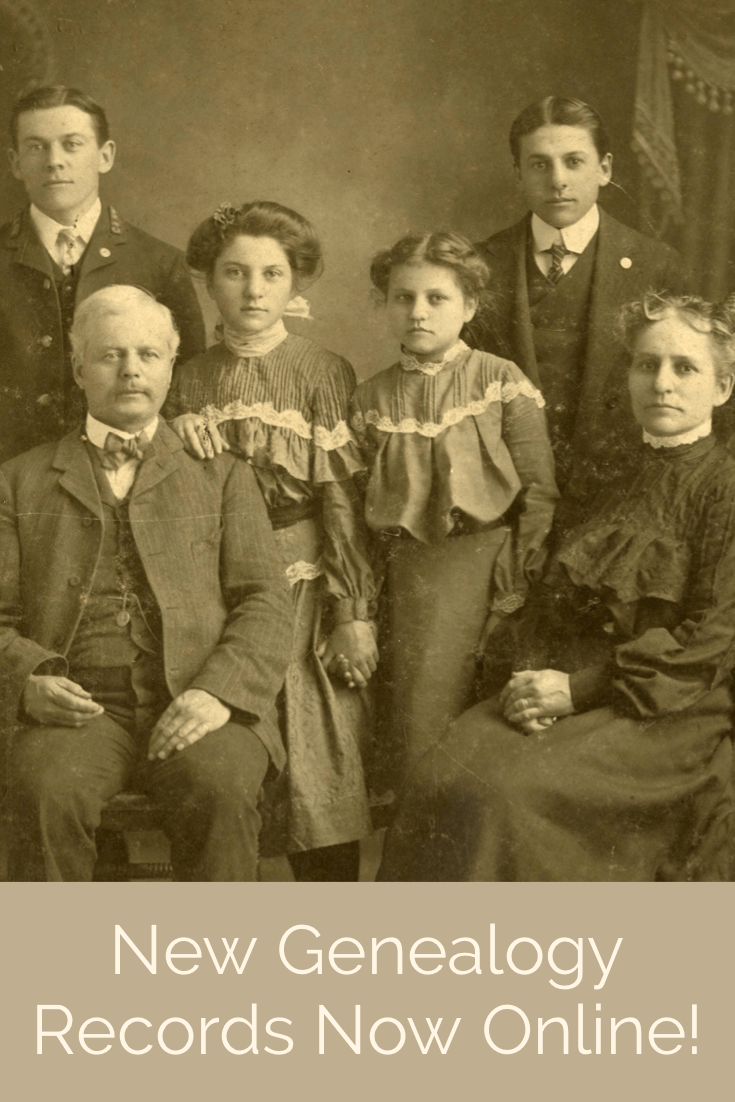
New European Records Online: Norway Featured
Findmypast recently announced their addition of over 100 million new European records now online. “Over 114 million new European births, baptisms, marriages, banns, deaths and burials are now available to search and explore on Findmypast. The new additions consist of transcripts sourced from the International Genealogical Index, a database compiled from a variety of sources from around the world.
Featured from this huge addition are three new indexes containing over 9.1 million Norwegian baptisms, marriages and burials are now available to search as part of our new collection of European records. These new collections span nearly 300 years of Norwegian history (1634 to 1927) and will generate new hints against your Findmypast family tree.
Anyone with ancestors from Norway has probably tapped into the National Archives of Norway’s Digital Archive. It’s one of the shining stars on the Internet that offer rays of research hope for those with Norwegian heritage. That’s why I was thrilled to be able to interview Yngve Nedreb, the Chief archivist at Riksarkivet (National Archives of Norway) for the Family Tree Magazine Podcast. In fact, I published an extended version of that interview in episode #161 of The Genealogy Gems Podcast. This is a “must hear” for those with Norwegian heritage! Click below to listen right now:
Lisa’s special guest: Yngve Nedrebø, Chief Archivist at Riksarkivet. http://www.arkivverket.no/eng/Digitalarkivet
Staffordshire, England Vital Records
Another brand new genealogy records collection online is over at Ancestry.com. The Staffordshire, England, Birth, Marriage and Death Indexes, 1837-2017 collection comprises indexes of civil registrations from Staffordshire, excluding the City of Stoke-on-Trent, reported quarterly to the General Register Office (GRO) in London.
- Name
- Maiden name of mother
- Date of event
- Death Age
- Place of Marriage
- Gender
- Registration district (each county in England and Wales was divided up into registration districts; jurisdictions are organized and appear as they existed at the time the record was created)
- Reference
Queensland, Australia
Also new at Ancestry is the Queensland, Australia, Licensed Victuallers Index, 1900-1903. The names of holders of victuallers’ licenses (publicans) were printed in the Queensland Government Gazette from 1900 to 1914 on an annual basis. This index covers the period from 1900 to 1903 and includes names, districts, and hotel names.
More about licensed victuallers from Wikipedia: “In the United Kingdom the owner and/or manager of a pub (public house) is usually called the “landlord/landlady”, and often, strictly incorrectly, “publican”, the latter properly the appellation of a Roman public contractor or tax farmer. In more formal situations, the term used is licensed victualler or simply “licensee”.[9] A female landlord can be called either a landlady or simply landlord.”
Ontario, Canada Insurance Policy Applications
Findmypast has another new collection now available online. “Did your Canadian ancestor apply for life insurance with The Independent Order of Oddfellows (IOOF) between 1875 and 1929? The IOOF is one of the world’s oldest fraternal orders. These insurance records are a unique source for tracing your family history. You will find images of the original applications which include your ancestor’s medical history, family’s medical history, and a physical description. The applications are two pages long. Be sure to use the next arrow to move to the next image.
Click to search the Ontario, Oddfellows Life Insurance Applications.
Discover More with the Genealogy Giants
Here at Genealogy Gems, we’ve adopted the name ‘Genealogy Giants’ to refer to the 4 major genealogy records websites: Ancestry.com, Findmypast.com, MyHeritage.com, and FamilySearch.org. Each website has its own unique and distinct offerings, but there can also be a lot of overlap. So with hefty subscription price tags, the question we’re often asked is, “Which website subscription do I need?” To tackle this, Sunny Morton’s RootsTech class uncovers the secrets on how to compare these 4 giants so that you spend your time and money wisely. Watch the entire presentation for free below, and then grab a copy of the companion quick reference guide Genealogy Giants: Comparing the 4 Major websites.

Disclosure: This article contains affiliate links and Genealogy Gems will be compensated if you make a purchase after clicking on these links (at no additional cost to you). Thank you for supporting Genealogy Gems!
Restarting Your Genealogy Research – Audio Podcast Episode 275
Has it been a while since you worked on your genealogy research? As passionate as we may be about genealogy, the reality is that a little thing called “Life” can get in the way! Getting back into genealogy can actually be a bit daunting. Where did you leave off? Where should you start back up?
If it’s been months or even years since you had your hands in genealogy, you’re in the right place. In this episode, we’re going to talk about how to pick up your genealogy after a hands-off spell so that you can quickly and efficiently get back on the trail of your ancestors.
This episode will also help if you feel like you’ve gotten a little out of control and disorganized in what you’ve been doing so far. This process also works very nicely as a quick audit to help you get back on track.
Listen to the Podcast Episode
To Listen click the media player below (AUDIO ONLY):
Show Notes & Video Version of this Episode
Show notes article and watch the video version: How to Get Back into Genealogy – Restart Your Genealogy!
Downloadable the ad-free Show Notes handout. Plus the BONUS download: Genealogy Restart Checklist (Both require Premium Membership.)
Become a Genealogy Gems Premium Member
Premium Members have exclusive access to:
- Exclusive video classes with downloadable handouts
- The Genealogy Gems Premium Podcast with downloadable handout
- Live Elevenses with Lisa shows
Learn more about Genealogy Gems Premium Membership.
Our Sponsors:
MyHeritage
Get your MyHeritage DNA Test Kit
Newspapers.com
Get 20% off a Publisher Extra subscription. Click here and use coupon code genealogygems
Visit Fort Wayne
Fort Wayne, Indiana is the home of the second-largest free genealogy library in the country. Make your plans to visit today. Learn more at https://www.visitfortwayne.com
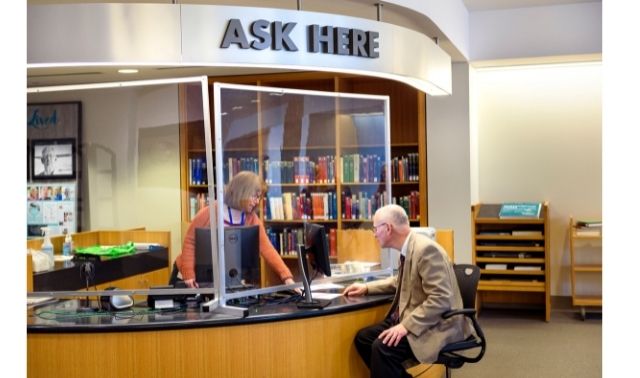
Learn more about the free genealogy resources at VisitFortWayne.com
Genealogy Gems Podcast App
Free Genealogy Gems Newsletter
Follow Lisa and Genealogy Gems on Social Media:
- Instagram.com/genealogygemspodcast
- Facebook.com/genealogygems
- Pinterest.com/lisalouisecooke
- YouTube.com/GenealogyGems
Podcast Resources
Click the Download icon in the player below to download the mp3:
Best of New and Updated Genealogy Records Collections
This week the entire Genealogy Gems team is heading to Dallas to present a two day event at the Dallas Public Library. With Lisa, Sunny and Diahan so busy, I’ve decided to take the reins this week and bring you a roundup of my favorite genealogy records of 2017! This compilation includes collections that are new, updated, and just plain fun! I’ve really enjoyed digging back into these and finding new genealogy gems. And I’d love to know: what exciting and helpful collections have you been using this year? Please share in the comments below!
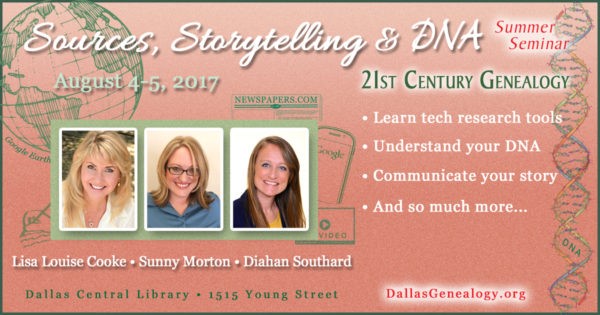
The Catholic Heritage Collection at Findmypast
In February of 2017, Findmypast announced the new Catholic Heritage Archive. Roman Catholic Church genealogical records go back centuries and are meticulously preserved, but difficult to obtain for the general public. Findmypast partnered with British and American Archdioceses to bring up to 100 million Catholic Church records online. Millions are available to search online now, and more will continue to be added.
English Roman Catholic Records
Irish Roman Catholic Records
Scottish Roman Catholic Records
United States & Canada Roman Catholic Records
Sanborn Fire Insurance Maps at the Library of Congress
The Library of Congress has put online nearly 25,000 additional Sanborn Fire Insurance Maps–and more are coming! Over the next three years, more will be added monthly until all 50 states are covered from the 1880s through the 1960s. This is definitely a collection to keep an eye on!
Sanborn maps show detailed information about neighborhoods, buildings, roads and more for thousands of towns in the U.S. and beyond. A sizable collection of pre-1900 Sanborn maps are already online at the Library of Congress (use the above link). Watch the short video below to learn more about them. The full length class is available to Genealogy Gems Premium Members.
https://youtu.be/Rhv5vtWwONM
Click here to learn more about how to use this outstanding online collection.
WWI Centennial – Free Records at FamilySearch
2017 marked the 100th anniversary of the United States entering World War I, and there was a wealth of records and historical resources featured online. I’m highlighting the collection of millions of WWI records available for free at FamilySearch.org, because who doesn’t love free?!
United States World War I Draft Registration Cards, 1917–1918
California, San Francisco, World War I Enemy Alien Registration Affidavits, 1918
Louisiana World War I Service Records, 1917–1920
Maine, World War I Draft Registration Index, 1917–1919
North Carolina, World War I Service Cards, 1917–1919
Texas, World War I Records, 1917–1920
United States Index to Naturalizations of World War I Soldiers, 1918
United States, YMCA World War I Service Cards, 1917–1919
Italian Civil Records at FamilySearch
Back in March, FamilySearch added to their unique collection of Italian genealogy records. Five specific locales in Italy have Civil Registration records online. Civil registrations include such things as births, marriages, and deaths. They can also include marriage banns and ten-year indexes. Of course, availability of records will depend on the time period and the location. In some cases, this collection goes back as far as the 15th century!
Italy, Viterbo, Civil Registration (State Archive), 1870-1943
Italy, Mantova, Civil Registration (State Archive), 1496-1906
Italy, Grosseto, Civil Registration (State Archive), 1851-1907
Italy, Rieti, Civil Registration (State Archive), 1840-1945
Italy, Enna, Civil Registration (State Archive), 1866-1944
Learn more about Italian genealogy: In the video below, Lisa sits down with Mary Tedesco of Genealogy Roadshow (on PBS in the US) and talks about doing the TV show, and her tips for conducting Italian genealogy research. This is just one of the many genealogy videos on our Genealogy Gems YouTube Channel.
https://youtu.be/6E8BuprPqsw
New England Vital Records
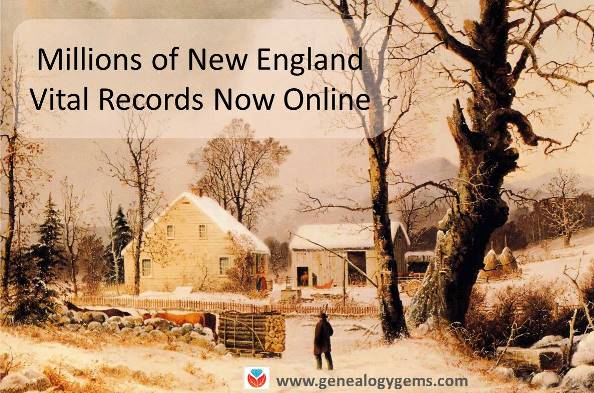 Millions of New England vital records became available online in May of this year, dating back as far as the 17th century. Collections are highlighted below:
Millions of New England vital records became available online in May of this year, dating back as far as the 17th century. Collections are highlighted below:
Connecticut. More than 755,000 indexed names added to FamilySearch.org’s free collection, Connecticut Marriages, 1640-1939.
Maine. FamilySearch.org added nearly a half million indexed names to its collection of Maine Vital Records, 1670-1921.
Massachusetts: New images have been added to the New England Historic Genealogical Society’s collection for the Roman Catholic Archdiocese of Boston, 1789-1900: Immaculate Conception (Salem), St. Mary (Salem), and Sacred Heart (Roslindale).
Rhode Island. FamilySearch added over a half million new indexed names and 30,000 digital images to its free collection, Rhode Island – Vital records. These are described as “Certificates and registers of births, 1846-1898, 1901-1903, marriages 1901-1903 and deaths, 1901-1953 acquired from the State Archives in Providence.”
British Emigration Records at Findmypast
We often talk about immigration, with an I, but have you researched your ancestors emigration records with an E? The 1600s saw a boom in British emigration, and Findmypast has curated several fascinating collections:
Early emigration from Britain 1636-1815 is a collection from Findmypast containing over 21,000 records that allow you to learn if your ancestors left Britain for North America or the West Indies. The collection includes 10 pieces from The National Archives including colonial papers, general entry books, passenger registers, and weekly immigration returns.
Britain, early emigration to Barbados centers on your British ancestors who left for a settlement in Barbados between 1678 and 1715. With over 20,000 assorted documents, this collection includes baptisms, burials, censuses, landowner lists, and more.
Britain, Royal African Company, 1694-1743 is a collection of over 55,000 records to uncover the details of those on board the Royal African Company’s ships to and from Africa as well as the names of those who lived and died at company forts. These Findmypast records came from The National Archives T 70 series, Company of Royal Adventurers of England Trading with Africa and Successors.
Click here to learn more about researching and working with emigration records.
…and just for fun…
Sydney, Australia – 19th Century Complaint Letters
When I saw this collection, I was totally tickled! I would love to find an ancestor’s complaint letter, as a window into their daily life and surrounding neighbors.
Over 56,000 letters written by residents to the City of Sydney in the latter part of the 1800s have been digitized and added to the City of Sydney Archive online. A city historian quoted at the Daily Telegraph.com said people’s complaints “range from the mundane to the bizarre,” such as “foul smells, night time noise, stray farm animals and smoke billowing from homes and blacksmiths’ forges.” This same online city archive also hosts a collection of historical photographs, a full run of Sands directories, postal directories, and other resources for researching your house history. Find this collection by clicking Archives Investigator and then “Letters Received by Council, 1843-1899.”
If you want to see what other records we’ve covered, there’s any easy way to narrow down to your specific ancestors! Visit our home page at www.GenealogyGems.com, and select a category from the drop-down menu on the left:
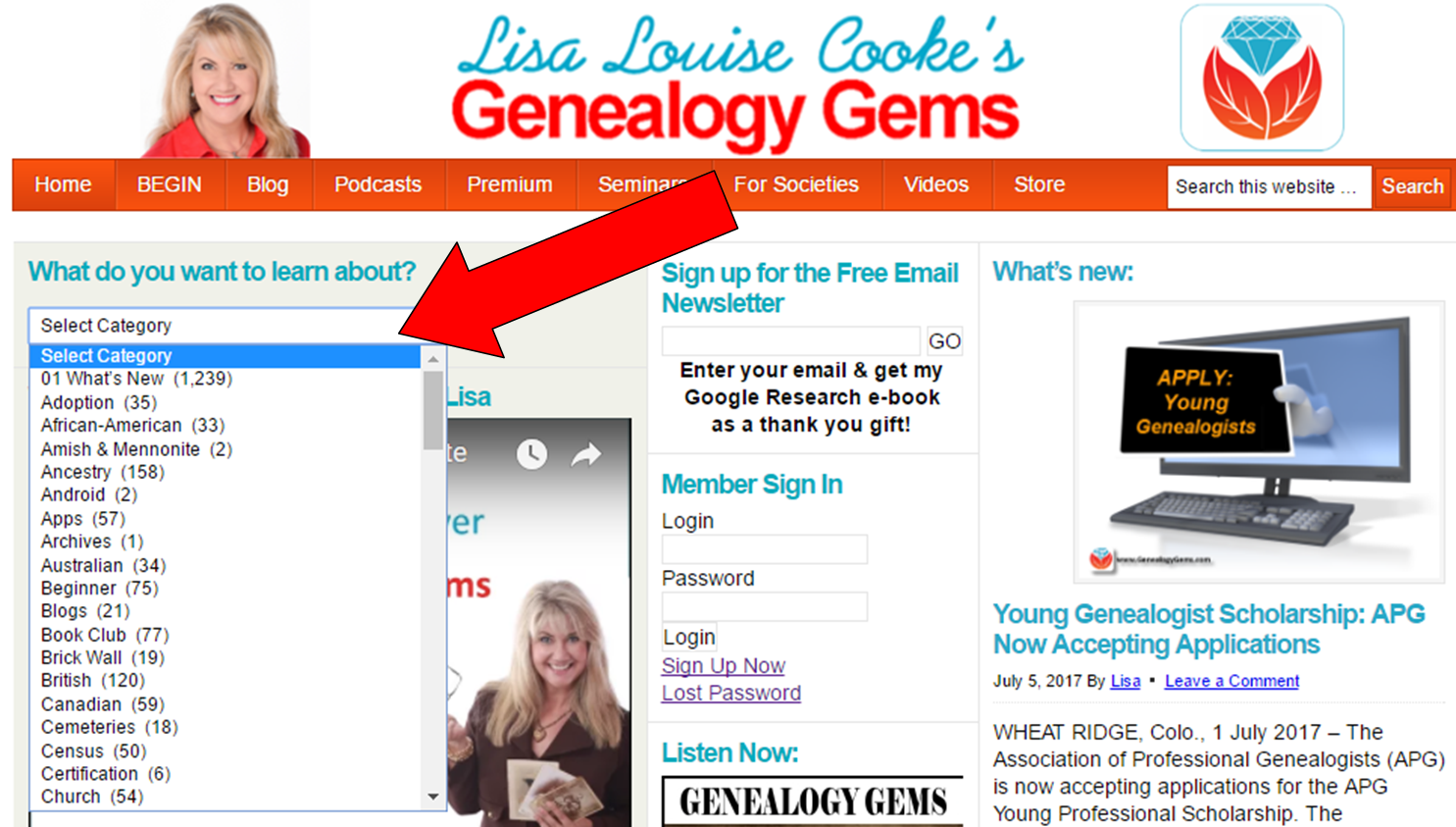
You can choose categories like Canadian, German, Irish, African-American, Australian, and more. You’ll receive of list of every article where that topic was featured or included. This is a super easy way to find new records collections for any area you’re currently researching. You can also choose other categories like newspapers, technology, organization, etc. for helpful how-tos, research strategies, and updates. And you can always use the search bar in the top right corner of our website if you don’t see your topic listed.
There’s a treasure trove of genealogy gems on our website!



